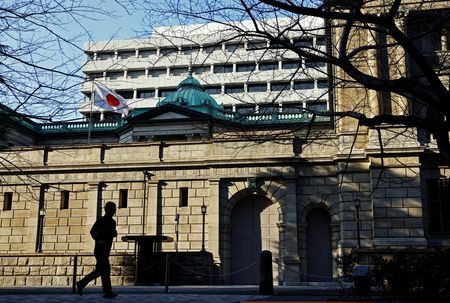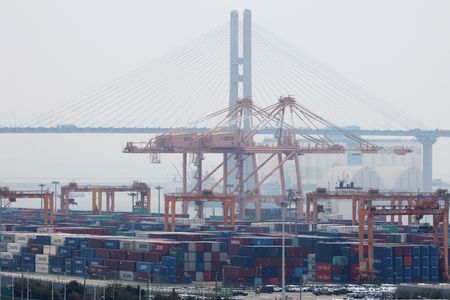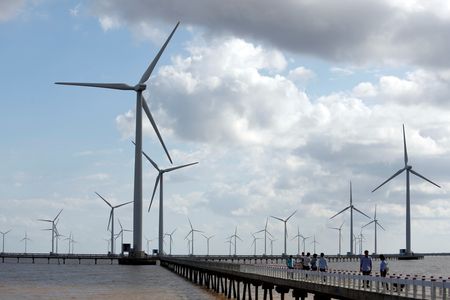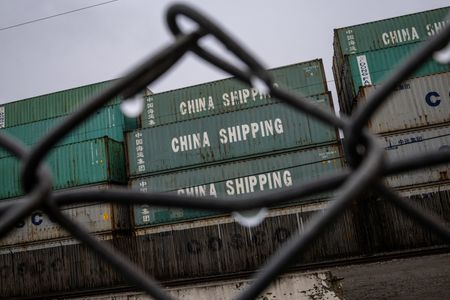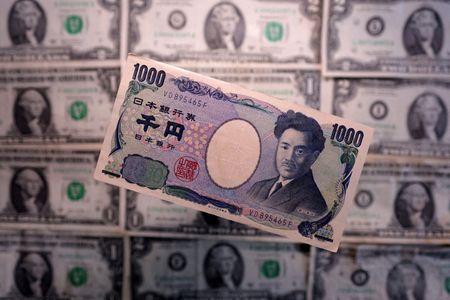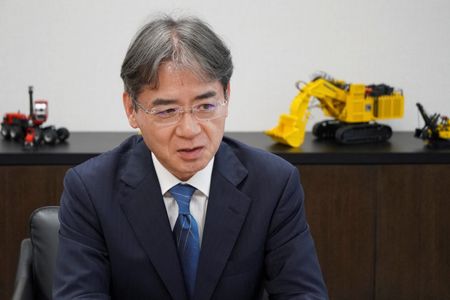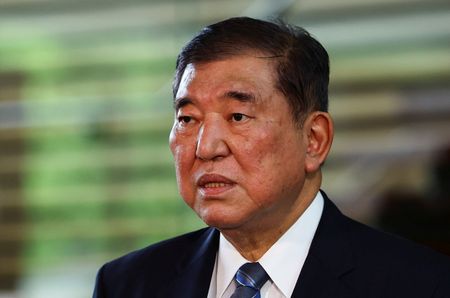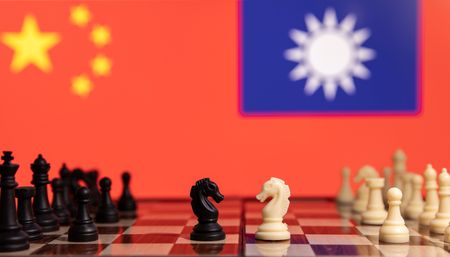By Leika Kihara
TOKYO (Reuters) -Bank of Japan board member Asahi Noguchi said on Thursday he saw no need for the central bank to intervene in the bond market to stem recent sharp rises in super-long yields, describing the moves as “rapid but not abnormal.”
Noguchi, a former academic regarded as one of the central bank board’s dovish members, also said the central bank must pause its interest rate hikes for the time being until there is more clarity on the impact of U.S. tariffs on the economy.
While the outcome of Tokyo’s trade negotiations with Washington may become clearer, U.S. tariffs will likely exert “quite strong downward pressure” on the economy, he said.
“When the outlook is so uncertain, there’s no point acting on interest rates,” he told a news conference, stressing the need to put off raising rates for the time being. “It’s important to avoid moving and scrutinise developments.”
While diminishing prospects of a near-term rate hike have kept shorter-term yields stable, those on super-long Japanese government bonds (JGBs) soared to all-time highs this week amid calls from politicians for big fiscal spending.
The spike in yields has led some analysts to speculate that the BOJ could ramp up bond buying in an emergency operation or issue a verbal warning against rapid market moves.
“Bond yields, at times, make volatile moves reflecting various views on the economic outlook,” Noguchi said.
“At times, central banks must take action to stabilise markets. I don’t think we’re seeing a situation where we need to do so,” he said, emphasising the need to allow market forces to determine bond yield moves.
The BOJ last year exited a massive stimulus programme that included a policy capping bond yields around zero. It raised its short-term policy rate to 0.5% in January, on the view Japan was making progress in durably meeting its 2% inflation target.
At its policy meeting next month, the BOJ will conduct an interim review of its bond tapering plan running through March and come up with a programme for April 2026 onward.
Noguchi said he saw no need to make any major changes to the current plan. In compiling the reduction plan for April 2026 onward, the central bank might need to take into account how much it eventually wants to trim its huge balance sheet, he said.
“It’s true the BOJ needs to reduce its huge bond holdings,” he said. “But the priority should be to avoid disrupting markets,” to scale back its balance sheet.
Fears of a U.S. tariff-induced global slowdown forced the central bank to sharply cut its growth forecasts at its April 30-May 1 policy meeting. That has cast doubt on the view that sustained wage hikes will underpin consumption and the broader economy.
A Reuters poll showed most economists now expect the BOJ will hold rates steady through September to assess the effects of U.S. tariffs, although a slight majority still see at least a 25-basis-point hike by year-end.
(Reporting by Leika Kihara and Chang-Ran Kim in Tokyo; additional reporting by Takahiko Wada in Miyazaki; Editing by Sonali Paul, Edwina Gibbs & Shri Navaratnam)

